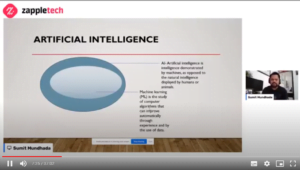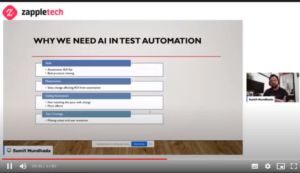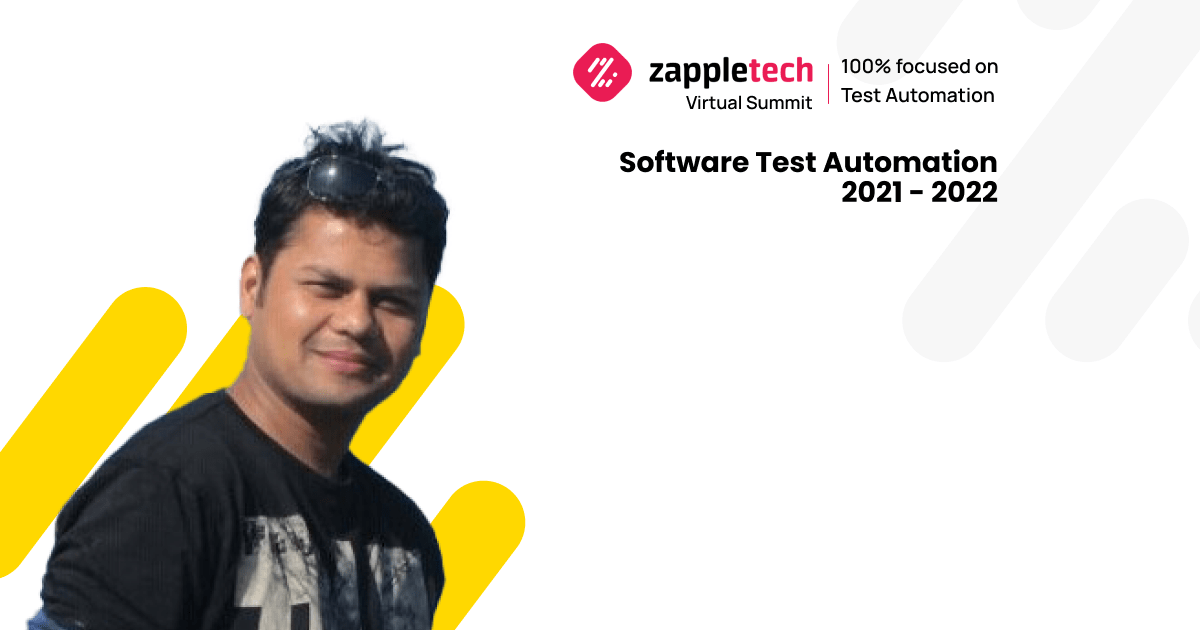Sumit Mundhada, an expert with over a decade of background in test automation, development of automation environments, and quality assurance of advanced technology products, spoke about use cases and future trends for AI and ML concerning software testing.
Table of Contents
The evolution of software testing
- manual testing;
- 1st generation of automation tools – bulky, expensive to maintain;
- advanced automation – scalable, with an accelerated release cycle;
- AI-driven test automation.
Artificial Intelligence and Machine Learning

AI is the intelligence exhibited by machines as opposed to the intelligence of living beings. ML is the domain of AI. It is the method of training a computer without direct instructions using mathematical data models. It enables the computer system to continue learning and self-improve based on experience.
Also, another narrower concept exists – deep learning. It is a set of machine learning methods based on artificial neural networks with representative learning.
Machine Learning Approaches
Supervised learning
This approach is suitable for solving problems related to classification and regression. For example, creating a weather forecast, stock market forecast, data classification.
Unsupervised learning
Optimal for clustering and dimension reduction. For example, you can use it for market segmentation.
Reinforcement learning
It includes the Q-learning method, the Deep-Q-Network algorithm. This approach has found its application in autonomous driving and games.
The role of AI in test automation

Skills. Even if your team has a specialist who has the necessary knowledge in the field, they remain a person, which means they tend to make mistakes. In addition, the machine can work 24/7, leaving time for other essential tasks.
Scaling automation. Due to the human factor, you may not keep up with the changes, or you may not have enough resources. The machine can accurately determine where scaling is needed and what resources are lacking. Or maybe you don’t know where to get them?
Test coverage. There are many technologies that use machine learning. It can help identify risks more effectively and cover more test cases than a person can.
Application areas of AI in software testing
- self-healing test automation;
- AI-based API automation testing, test data generation;
- spidering AJ;
- visual testing;
- autonomous testing;
- defect prevention analysis;
- smart autonomous suite.
Once you understand how AI and ML operate, you can apply them to improve skills, automate, and test – and these technologies will make your life easier.




